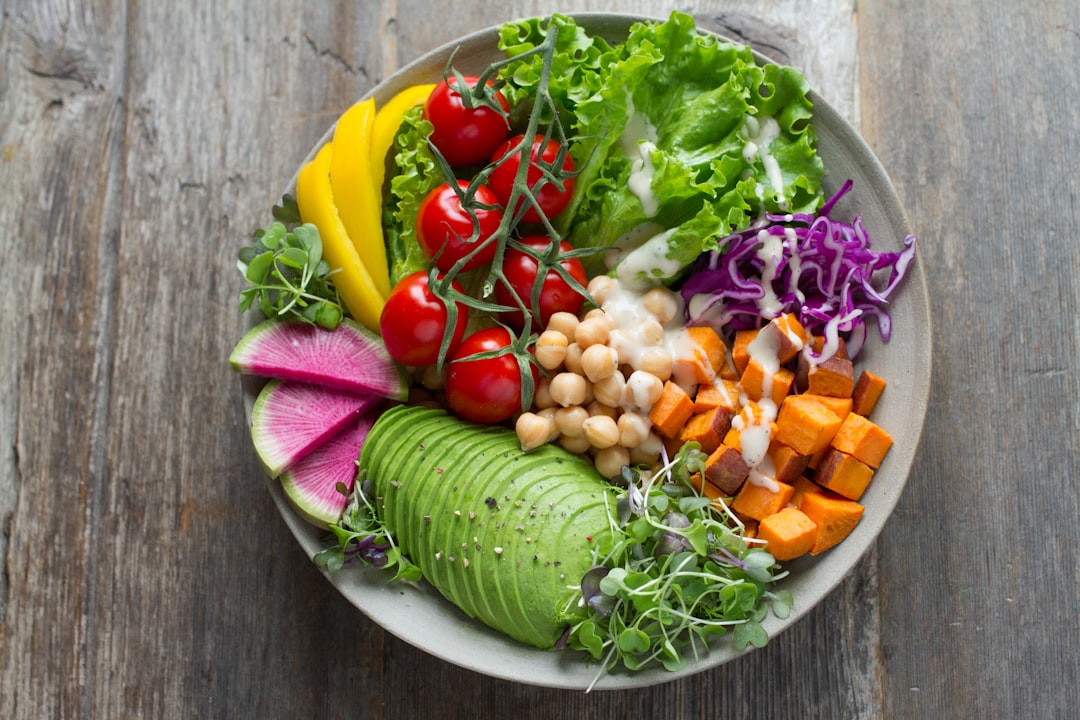In recent years, plant-based eating has become a popular trend among health-conscious individuals. Consuming more plant-based foods and less meat and animal products can contribute to a healthier lifestyle, not only for our bodies but also for the environment.
Plant-based eating includes a wide variety of foods such as fruits, vegetables, whole grains, legumes, nuts, and seeds. These foods are rich in essential nutrients, vitamins, and antioxidants which are vital to keeping our bodies healthy and balanced.
But plant-based eating is not just about consuming more fruits and vegetables. It’s about making a conscious effort to fuel our bodies with nourishing foods that can potentially slash the risk of chronic illnesses and diseases like diabetes, heart disease, and cancer. Moreover, adopting a plant-based diet can also help reduce our carbon footprint, making it an eco-friendly choice for those who are passionate about preserving the environment.
In this blog post, we will explore the many benefits of plant-based eating, including its health benefits, eco-friendly advantages, and budget-friendly options. We will also talk about mindful eating and how it can contribute to a balanced, healthy life. By the end of this article, you will have a comprehensive understanding of the power of plant-based eating and how it can transform your life for the better.
Mindful Eating: A Key to Balanced Living
Eating mindfully means being present and fully engaged in the experience of eating. It involves paying attention to your body’s hunger and fullness cues, savoring the taste, smelling the food, and enjoying every bite. Mindful eating is a key aspect of balanced living, as it allows you to make conscious food choices and build a healthy relationship with food.
When we eat mindlessly, we tend to overeat and choose unhealthy processed foods high in saturated fats, salt, and sugar. These unhealthy food choices can cause a range of health problems, including obesity, heart disease, and diabetes. Mindful eating, on the other hand, can help you make healthier food choices and manage your weight effectively.
By taking the time to sit down and eat mindfully, you give yourself a break from the hustle and bustle of daily life. You are allowing yourself to take a few minutes to relax, reflect, and focus on your body’s needs. Mindful eating can also prevent emotional eating, a habit many people use to cope with stress or anxiety. When you eat mindfully, you acknowledge your emotions and learn to respond to them in a healthy way.
Mindful eating is a natural fit for a plant-based lifestyle. Eating plant-based foods requires you to slow down and appreciate fresh, whole foods that nourish your body. Plant-based eating also offers a wide variety of nutrient-rich options, from leafy greens to vibrant fruits and vegetables, making it easy to eat mindfully and fuel your body with essential nutrients.
Now that we’ve explored the importance of mindful eating, in the next chunk, we will dive into the essential nutrients you can nourish your body with on a plant-based diet.
Plant-based eating also offers a wide variety of nutrient-rich options, from leafy greens to vibrant fruits and vegetables, making it easy to eat mindfully and fuel your body with essential nutrients.
Nourishing Your Body with Essential Nutrients
When it comes to nourishing your body with essential nutrients, a plant-based diet provides a wide variety of options. By including a variety of fruits, vegetables, whole grains, legumes, nuts, and seeds, you can ensure that your body is getting everything it needs to thrive.
One of the benefits of a plant-based diet is that these foods are naturally low in saturated fat and high in fiber, which can promote good digestion, reduce cholesterol levels, and even lower your risk of chronic diseases such as heart disease, type 2 diabetes, and certain types of cancer.
In addition to fiber, plant-based foods are rich sources of vitamins, minerals, and antioxidants that are vital to our health. For example, leafy greens such as kale and spinach are rich in iron, calcium, and vitamin K, while citrus fruits are high in vitamin C. Nuts and seeds are great sources of healthy fats, as well as protein and important minerals like magnesium and zinc.
It is important to note that while a plant-based diet can provide all of the essential nutrients your body needs, it does require some planning to ensure that you are getting enough of certain vitamins and minerals, such as vitamin B12 and iron. Including fortified foods or supplements can help fill in any gaps.
Overall, nourishing your body with essential nutrients through a plant-based diet is not only delicious but also beneficial for your long-term health. By choosing to eat a variety of whole, plant-based foods, you can help your body reach its full potential.
Overall, nourishing your body with essential nutrients through a plant-based diet is not only delicious but also beneficial for your long-term health.
Health Benefits of a Plant-Based Diet
As more people become aware of the numerous benefits of plant-based eating, there has been a surge in the popularity of vegan and vegetarian diets. Plant-based diets are known to be rich in fiber, vitamins, and minerals while being low in cholesterol and saturated fats. This makes them an excellent choice for those who are looking to improve their health and well-being.
One of the most significant health benefits of a plant-based diet is the reduced risk of chronic diseases. Studies have shown that a plant-based diet can reduce the risk of heart disease, stroke, type 2 diabetes, and certain types of cancer. This is because plant-based foods are rich in antioxidants, phytochemicals, and other nutrients that help to fight inflammation and oxidative stress in the body.
Plant-based diets are also known to be beneficial for weight loss and management. A plant-based diet can help you lose weight, especially if you consume fewer calories than you burn in a day. This is because plant-based foods tend to be lower in calories than animal-based foods.
Moreover, a plant-based diet can improve gut health by promoting the growth of healthy bacteria in the gut. This is due to the high fiber content found in plant-based foods, which helps to feed beneficial bacteria in the gut. A healthy gut microbiome has been linked to improved immune function, reduced inflammation, and better overall health.
In addition to these health benefits, a plant-based diet can also boost your mood and cognitive function. Studies have shown that those who consume plant-based diets tend to have better mental health, lower rates of depression and anxiety, and improved cognitive function. This is likely due to the high levels of nutrients found in plant-based foods, which have been shown to support brain health.
In conclusion, a plant-based diet can have a significant impact on your health and well-being. The benefits of consuming a plant-based diet are numerous, including reduced risk of chronic diseases, healthy weight loss, improved gut health, better mood and cognitive function, and more. If you’re looking to improve your health and reduce your risk of chronic diseases, consider transitioning to a plant-based diet.
This is likely due to the high levels of nutrients found in plant-based foods, which have been shown to support brain health.
Eco-Friendly Benefits of Plant-Based Eating
Eating a plant-based diet is not only good for your health, but it’s also good for the environment. In this section, we’ll explore the eco-friendly benefits of plant-based eating.
Firstly, let’s discuss the impact meat production has on the environment. According to the United Nations, the meat industry accounts for 14.5% of global greenhouse gas emissions. This is more than the entire transportation sector combined. Livestock farming requires a large amount of land, water, and feed, which contributes to deforestation, water pollution, and soil degradation. By reducing our meat consumption, we can reduce our carbon footprint and help combat climate change.
Plant-based eating also conserves water. The average American diet requires an astonishing 4,200 gallons of water per day, mostly from animal production. In contrast, a plant-based diet requires only 300 gallons of water per day. Producing one pound of beef requires 1,847 gallons of water, while producing a pound of vegetables requires only 39 gallons. By choosing to eat plant-based, we can help conserve our planet’s precious water resources.
Did you know that plant-based eating can also help preserve biodiversity? Animal agriculture is the leading cause of species extinction, habitat destruction, and ocean dead zones. By reducing our meat consumption and supporting plant-based agriculture, we can protect precious ecosystems and wildlife.
Finally, let’s talk about food waste. Roughly one-third of all food produced globally is lost or wasted. Livestock farming requires a large amount of feed and produces a lot of waste, contributing to this problem. Choosing to eat plant-based can reduce food waste by encouraging the consumption of whole foods that have a longer shelf life and can be easily preserved.
In conclusion, plant-based eating not only offers countless health benefits but also has a positive impact on the environment. By reducing our meat consumption, conserving water resources, preserving biodiversity, and reducing food waste, we can help create a more sustainable future for generations to come.
According to the United Nations, the meat industry accounts for 14.
Budget-Friendly Plant-Based Eating
When many people think about eating a plant-based diet, they often assume it’s expensive, time-consuming, and inaccessible. But this couldn’t be further from the truth! In fact, a plant-based diet can be budget-friendly and quite simple to incorporate into your daily life. Here are some tips for making plant-based eating affordable and convenient:
Shop Locally and In-Season
One of the biggest benefits of a plant-based diet is the abundance of fresh fruits and vegetables that can be incorporated into your diet. The best way to ensure that you’re getting the freshest and most affordable produce is to buy in-season and from local farmers. Shopping at farmers’ markets or joining a community-supported agriculture (CSA) program allows you to connect with your local food system while supporting small-scale farmers.
Buy Foods in Bulk
When you buy certain plant-based staples in bulk, you save money in the long run. Foods like beans, grains, nuts, and seeds are all inexpensive when bought in larger quantities. And if you have limited storage space, consider splitting costs and sharing bulk purchases with a friend or family member.
Plan Meals Ahead of Time
If you plan your meals ahead of time, you can save money and reduce food waste. When you have a clear idea of what meals you’ll be making for the week, you’re less likely to purchase unnecessary items or throw away excess produce.
Meal Prep
Another great way to save money and time on food is by meal prepping. Spending a couple of hours each week preparing meals and snacks in advance can save you time and energy during busy workdays. Focus on meals that can be easily prepped in bulk and stored in the refrigerator or freezer.
Embrace Simple Recipes
You don’t need fancy equipment or expensive ingredients to make delicious plant-based meals. Simple recipes that focus on a few fresh ingredients can be just as satisfying as complex dishes. Look for recipes with fewer ingredients that can easily be customized based on what’s in your fridge or pantry.
Grow Your Own Food
Finally, if you have a yard or even a small balcony, consider growing your own fruits and vegetables. Growing your own produce not only saves money, but it also provides a sense of pride as you enjoy the fruits (and veggies) of your labor.
Conclusion
Eating a plant-based diet doesn’t have to break the bank. With a little bit of planning and creativity, you can nourish your body and save money at the same time. So why not give it a try? Your wallet and your health will thank you!
Budget-Friendly Plant-Based Eating
When many people think about eating a plant-based diet, they often assume it’s expensive, time-consuming, and inaccessible.
Conclusion: Making the Switch to a Plant-Based Lifestyle
In conclusion, adopting a plant-based lifestyle has numerous benefits. From its positive impact on your health to its eco-friendly nature, there are plenty of reasons to consider changing your eating habits.
By following mindful eating practices, you can improve your overall wellbeing and relationship with food. Additionally, a plant-based diet provides essential nutrients, making it an excellent choice for individuals looking to nourish their bodies.
Switching to a plant-based lifestyle also has significant environmental benefits. The production of meat and dairy products has a significant impact on our planet. Adopting a plant-based diet can help reduce greenhouse gas emissions and the overuse of natural resources.
Furthermore, plant-based eating can be budget-friendly. Choosing affordable plant-based proteins and seasonal produce can help keep your grocery bill low while still allowing you to create delicious and nutritious meals.
At the end of the day, it’s essential to prioritize your health, the environment, and your wallet. By making the switch to a plant-based lifestyle, you can do all three. Whether you decide to go fully vegan, vegetarian, or even just incorporate more plant-based meals into your diet, every little bit makes a difference.
So let’s embrace the power of plant-based eating and take the first step towards a healthier, more sustainable future. Your body and the planet will thank you for it.





